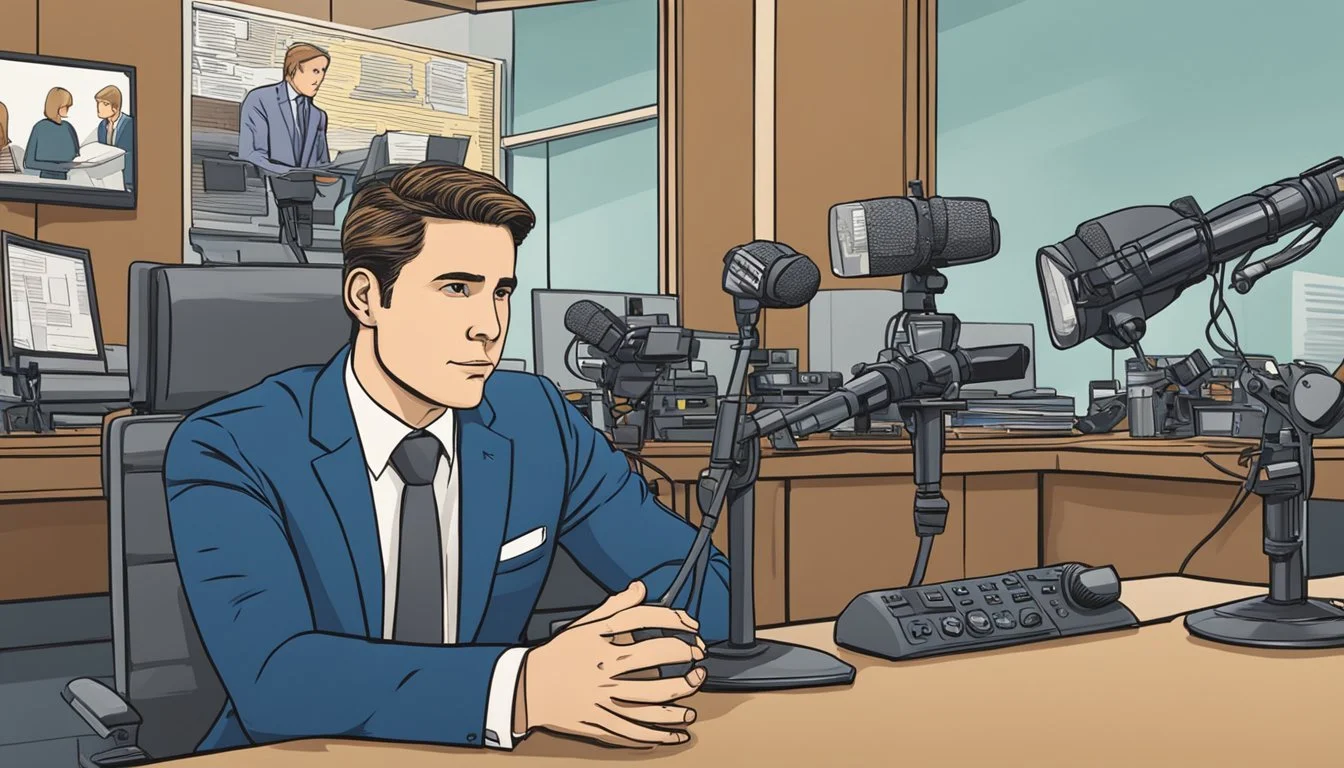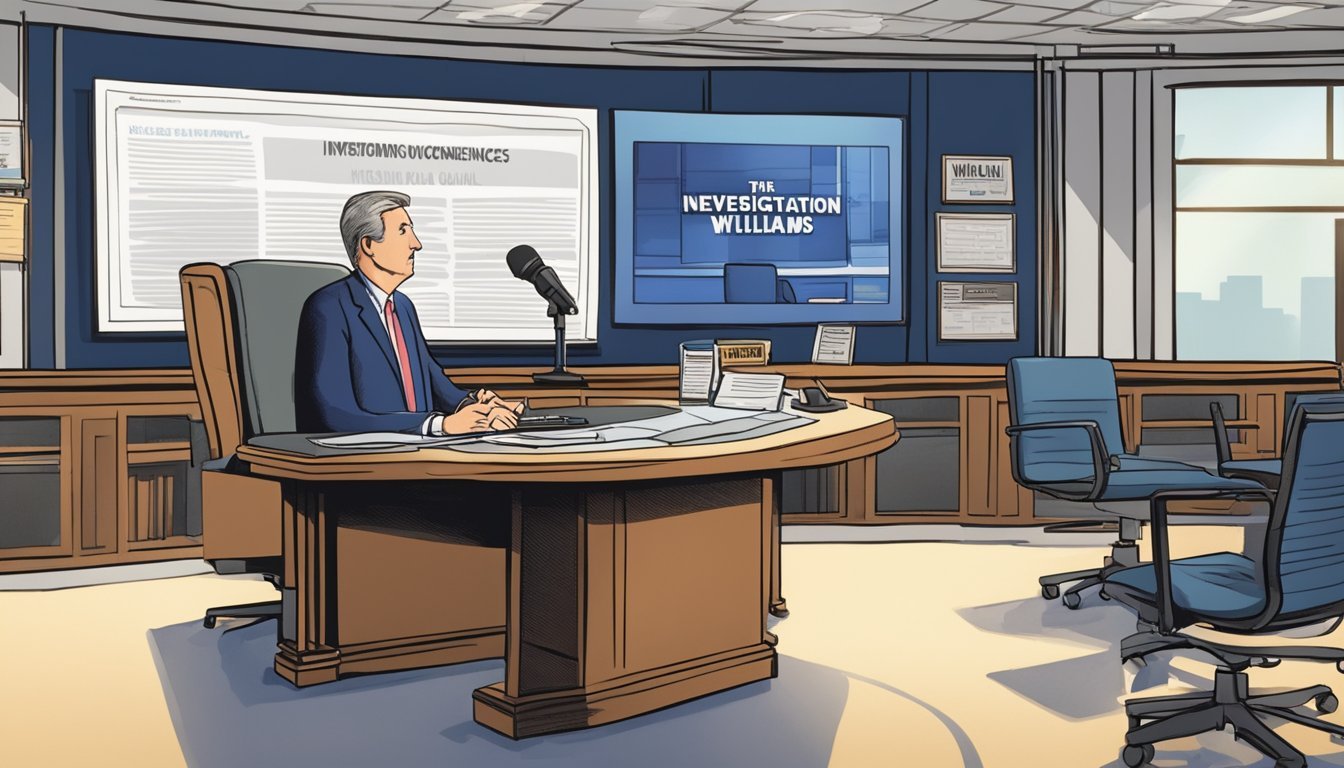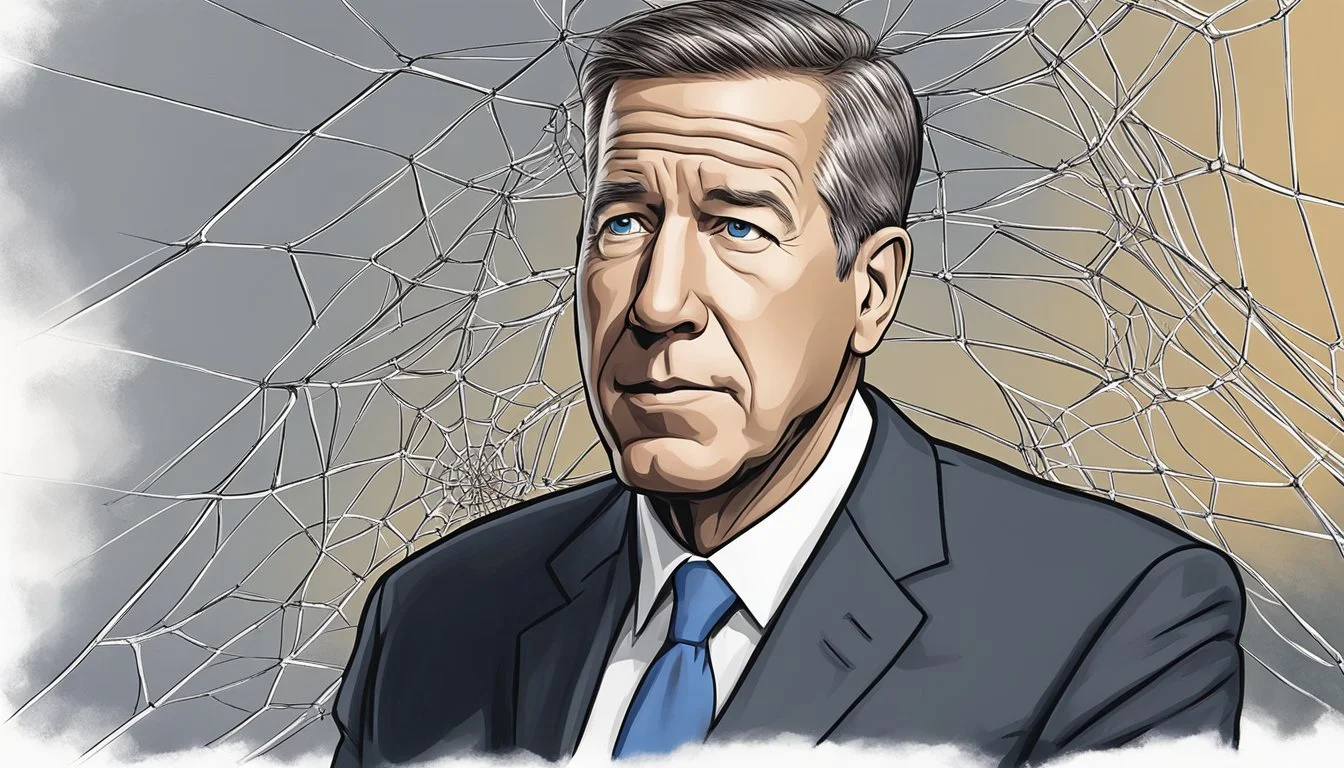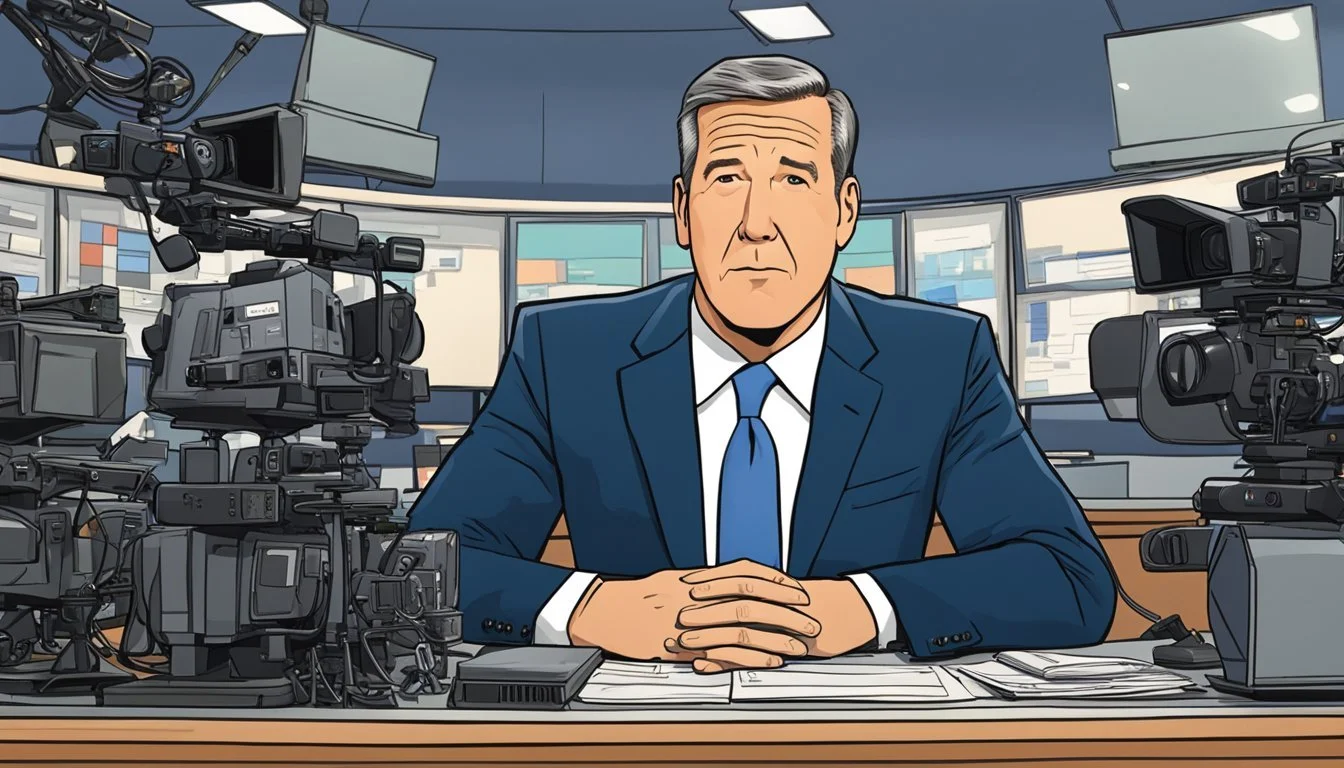Brian Williams: When Embellishment Costs Credibility
A Cautionary Tale for Journalists
Brian Williams, once a trusted voice in American journalism, saw his career unravel due to embellished stories about his experiences reporting from war zones. In 2015, Williams admitted to falsely claiming he was in a helicopter hit by enemy fire during the Iraq War in 2003. This admission sparked a wider investigation into other potentially exaggerated claims, ultimately leading to his suspension from NBC Nightly News.
The Williams scandal highlighted the fragile nature of journalistic credibility and the severe consequences of even minor embellishments. His case became a cautionary tale for journalists and public figures alike, demonstrating how quickly trust can erode when the line between fact and fiction blurs. The incident also sparked broader discussions about the pressures faced by news anchors to create compelling narratives and the ethical responsibilities of those in positions of public trust.
The fallout from Williams' embellishments extended beyond his personal career, impacting public perception of broadcast journalism as a whole. It raised questions about the vetting processes within major news organizations and the balance between storytelling and factual reporting in an era of increasing competition for audience attention.
Brian Williams's Journalism Career
Brian Williams rose to become one of America's most prominent broadcast journalists, anchoring NBC Nightly News for over a decade. His career trajectory took him from local news to the pinnacle of network television.
Rise to Prominence
Williams began his journalism career in 1981 at KOAM-TV in Kansas. He quickly moved up to larger markets, joining NBC News in 1993 as a correspondent. His coverage of major events like the Oklahoma City bombing and Hurricane Katrina garnered attention.
In 1996, Williams became anchor of MSNBC's nightly newscast. This role elevated his national profile and showcased his skills as a news presenter. His calm demeanor and clear delivery style impressed network executives.
Williams also served as substitute anchor for NBC Nightly News, filling in for Tom Brokaw. These appearances further increased his visibility and set the stage for his future ascent.
Anchor of NBC Nightly News
In 2004, Brian Williams succeeded Tom Brokaw as anchor and managing editor of NBC Nightly News. This position cemented his status as one of the most influential journalists in American television.
Under Williams's leadership, NBC Nightly News maintained its position as the most-watched evening newscast in the United States. His tenure saw coverage of major events like Hurricane Katrina, the 2008 financial crisis, and the death of Osama bin Laden.
Williams's style combined authoritative reporting with occasional moments of levity. He made frequent appearances on late-night talk shows, helping to broaden his appeal beyond traditional news audiences.
His success as anchor led to additional roles within NBC News, including hosting the newsmagazine Rock Center with Brian Williams from 2011 to 2013.
The Iraq Helicopter Incident
Brian Williams' account of a helicopter incident during the 2003 Iraq invasion became a pivotal moment in his career. The story evolved over time, sparking controversy and raising questions about journalistic integrity.
Initial Reporting in 2003
On March 26, 2003, Williams reported on NBC about events that occurred two days earlier in the Iraqi desert. He stated that a Chinook helicopter flying ahead of his aircraft was "almost blown out of the sky" by rocket-propelled grenade (RPG) fire. Williams was embedded with U.S. military forces during the initial invasion of Iraq.
The original report did not claim that Williams' own helicopter had been hit or forced down. Instead, it focused on the danger faced by the lead aircraft and the broader risks of operating in a combat zone.
Claims of Embellishment
Over the years, Williams' retelling of the incident changed significantly. In later accounts, he placed himself in the helicopter that was directly hit by enemy fire. He described being forced to land after an RPG strike and facing potential danger on the ground.
These embellished versions appeared in various public statements and interviews. Williams spoke of being saved by American soldiers and experiencing the fear of being in a aircraft under attack. The story became more dramatic and personal with each retelling.
Public Reaction and Veterans' Response
When discrepancies in Williams' account came to light, public reaction was swift and critical. Veterans who were present during the 2003 incident challenged his version of events. They affirmed that Williams was not in the helicopter that came under fire, but arrived in the area about an hour later.
The controversy sparked widespread discussion on social media. Many expressed disappointment and anger at what they saw as an attempt to exaggerate wartime experiences. Veterans felt particularly betrayed, viewing it as disrespectful to those who had faced genuine danger.
Military personnel involved in the incident provided detailed accounts that contradicted Williams' claims. This led to intense scrutiny of his reporting and credibility as a news anchor.
Investigation and Consequences
NBC News launched an internal investigation into Brian Williams' statements, leading to his suspension. The incident severely damaged his credibility and personal brand.
NBC News's Internal Investigation
NBC News initiated a thorough investigation into Brian Williams' claims. The network examined his past reports and statements, focusing on potential embellishments or inaccuracies. Investigators interviewed colleagues and reviewed archival footage.
The probe uncovered discrepancies in Williams' accounts of events in Iraq and New Orleans. NBC's fact-checking process came under scrutiny, raising questions about oversight of high-profile anchors.
As the investigation progressed, more allegations surfaced. Public trust in Williams and NBC News eroded rapidly.
Suspension and Legal Representation
NBC suspended Brian Williams for six months without pay in February 2015. The network cited his misrepresentation of events in Iraq as the primary reason.
Williams hired prominent attorney Robert Barnett to represent him during negotiations with NBC. Barnett, known for handling media personalities, worked to protect Williams' interests and reputation.
The suspension marked a significant blow to Williams' career and NBC's prime-time lineup. It sparked debates about journalistic integrity and accountability in the news industry.
Impact on Personal Credibility and Brand
The scandal severely damaged Brian Williams' personal credibility. His reputation as a trusted news anchor crumbled rapidly.
Public perception shifted from viewing Williams as a reliable journalist to questioning his honesty. Social media amplified criticism and mockery of his past statements.
Williams' brand, built on authenticity and trust, suffered irreparable harm. His future in journalism became uncertain.
The incident highlighted the fragility of a news anchor's credibility and the swift consequences of betraying public trust.
Broader Context and Industry Reaction
Brian Williams' embellishment scandal sparked widespread debate about journalistic integrity and accountability in the media industry. The incident raised questions about trust, ethics, and the responsibility of news organizations to maintain credibility.
Journalistic Standards and Ethics
The Williams case highlighted the importance of accuracy and truthfulness in reporting. Many news organizations reviewed their policies on fact-checking and source verification. The Society of Professional Journalists emphasized the need for journalists to be accountable and transparent.
Some media outlets implemented stricter guidelines for personal anecdotes shared by reporters. Others focused on improving their internal review processes for high-profile stories.
The incident also reignited discussions about the blurred lines between news and entertainment in modern media.
Responses from Peers and Media Critics
Reactions from fellow journalists and media critics were mixed. Some defended Williams, citing the pressures of the 24-hour news cycle and the tendency for memories to shift over time.
Others were less forgiving. Tom Brokaw, Williams' predecessor at NBC Nightly News, reportedly called for Williams' dismissal. Jon Stewart of The Daily Show addressed the issue with a blend of humor and criticism.
The New York Times and Washington Post published in-depth analyses of the scandal. Many commentators questioned whether Williams could regain public trust.
Comparisons with Other Journalistic Scandals
Media observers drew parallels between Williams' case and other high-profile journalistic scandals. The fabrications of Jayson Blair at The New York Times and Stephen Glass at The New Republic were frequently cited.
Some argued that Williams' embellishments, while serious, were less egregious than outright fabrication of stories. Others contended that his prominent position as a network anchor made his transgression more damaging.
The scandal also sparked discussions about the role of memory in reporting and the dangers of conflating personal experiences with news events.
Aftermath and Recovery
Brian Williams faced significant professional consequences after his credibility was called into question. His path to rebuilding trust and returning to broadcasting was challenging and marked by key decisions from NBC leadership.
The Role of Lester Holt
Lester Holt stepped in as interim anchor of NBC Nightly News when Williams was suspended. Holt's steady presence and journalistic integrity helped stabilize the program during a turbulent time. His performance in the role was well-received by viewers and industry insiders alike.
NBC News Chairman Andrew Lack ultimately decided to keep Holt as the permanent anchor of Nightly News. This move provided continuity and allowed the network to move forward while addressing Williams' situation.
Holt's success in the anchor chair demonstrated NBC's ability to weather the controversy and maintain its standing in network news.
Rebuilding Trust and Return to Broadcasting
Williams' journey to rebuild trust began with a six-month unpaid suspension from NBC. During this time, he remained out of the public eye, reflecting on his actions and their consequences.
NBC eventually reassigned Williams to MSNBC, where he anchored breaking news coverage. This role allowed him to gradually re-establish his on-air presence in a less high-profile position.
Williams approached his return with humility, acknowledging his past mistakes in interviews and on-air statements. He focused on delivering accurate news coverage to regain credibility with viewers and colleagues.
Long-Term Repercussions on Career
The embellishment scandal had lasting effects on Williams' career trajectory. He lost his position as the face of NBC News and the substantial influence that came with it.
While Williams continued to work in broadcasting, his role at MSNBC was a significant step down from his previous status as network anchor. The incident likely limited future opportunities for career advancement in major network news positions.
Despite these setbacks, Williams maintained a presence in journalism. He hosted "The 11th Hour with Brian Williams" on MSNBC, finding a new niche in late-night news programming.
Conclusion
Brian Williams' embellishment of his Iraq War experiences dealt a severe blow to his journalistic credibility. His false claims about being in a helicopter hit by enemy fire eroded public trust in both Williams and NBC News.
The incident highlighted the critical importance of truthfulness and accuracy in journalism. It demonstrated how even a respected anchor can damage their reputation through exaggeration or misrepresentation of facts.
Williams' case serves as a cautionary tale for journalists. It underscores the need for rigorous fact-checking and ethical reporting practices. The public relies on news organizations for accurate information, and any breach of that trust can have far-reaching consequences.
The scandal also revealed the power of social media in exposing inaccuracies and holding public figures accountable. Veterans who were present during the actual events used online platforms to challenge Williams' account.
Ultimately, Williams' embellishment cost him his position as NBC Nightly News anchor. The incident remains a stark reminder of the paramount importance of credibility and integrity in journalism.






